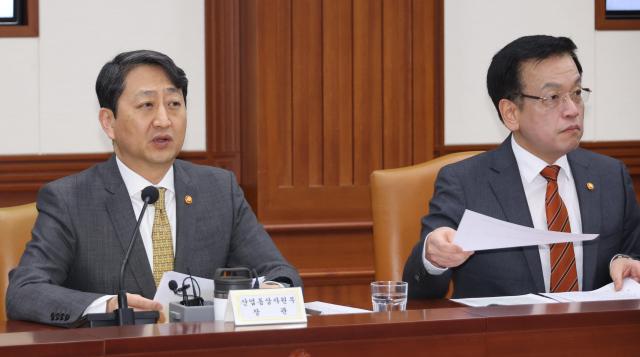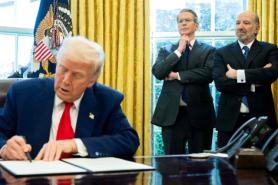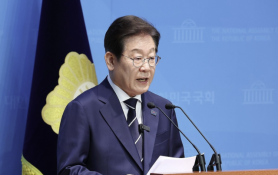
Choi is expected to meet with U.S. Treasury Secretary Scott Bessent on the sidelines of the G20 finance ministers' meeting in Washington.
Separately, South Korea’s Industry Minister Ahn Duk-geun is scheduled to hold talks with U.S. Trade Representative Jamieson Greer and Commerce Secretary Howard Lutnick.
South Korean officials indicated that talks could shift to a “2+2” format involving joint discussions between finance and trade leaders. “Discussions about the negotiation format are still ongoing,” a senior official said.
The diplomatic push follows the United States’ decision to pause the implementation of newly announced “reciprocal” tariffs for 90 days, granting key trading partners, including South Korea, time to reach negotiated agreements.
“The U.S. Treasury has proposed a meeting with Deputy Prime Minister Choi during his G20 visit next week to discuss trade issues,” the finance ministry said in a statement.
The South Korean government seeks to secure favorable terms ahead of the tariff deadline. Officials are preparing a comprehensive proposal that addresses U.S. concerns over trade imbalances and non-tariff barriers. Measures under consideration include increased imports of American liquefied natural gas, crude oil, agricultural goods and defense equipment.
The package also outlines plans to expand South Korean investment in U.S.-based manufacturing, particularly in automobiles, semiconductors and other high-value exports — a move designed to help narrow the bilateral trade deficit, a key priority of U.S. President Donald Trump.
U.S. Treasury Secretary Bessent told Bloomberg on Monday that allies who engage early could benefit from a “first-mover advantage,” adding, “Usually, the first person who makes a deal gets the best deal.”
Industry officials say Seoul may also bring strategic projects to the table, including U.S.-South Korea cooperation on shipbuilding and South Korean participation in the Alaska LNG pipeline project. While not directly tied to tariff-related concerns, these ventures could offer Seoul additional leverage.
Trump recently highlighted his interest in the Alaska pipeline via his social media platform, Truth Social, referring to a phone call with South Korea’s Acting President Han Duck-soo. He cited a discussion about South Korea’s “tremendous and unsustainable surplus,” as well as issues ranging from shipbuilding to large-scale LNG purchases.
Domestically, the South Korean delegation faces pressure from political developments at home. With a presidential election scheduled for June 3, analysts say the current administration may have limited room to make binding commitments.
Speaking before the National Assembly on Tuesday, Choi acknowledged the constraints.
“Since negotiations involve another party, we will maximize our efforts to protect national interests now,” he said. “The remaining issues could be finalized after the new administration takes office.”
Copyright ⓒ Aju Press All rights reserved.




